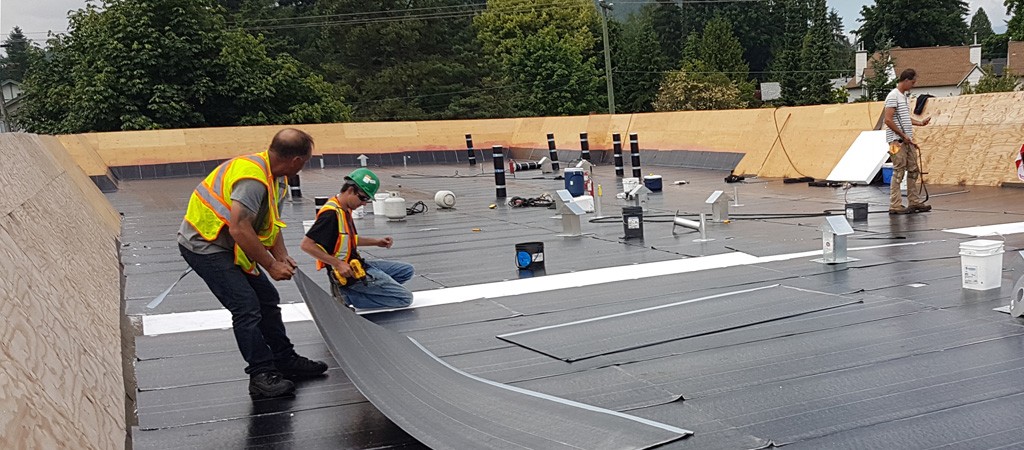
It does not take a genius to know that residential roofing and commercial roofing are different. Roofs on all buildings ultimately serve the same purpose – providing structural support and shelter from inclement weather, and damage to roofs exposes a building and its contents to the effects of said weather. Indeed, without proper construction and maintenance, the cost of roofing damage to both commercial and residential roofs can be significant due to the value of the property damaged and also the cost of repairs. Nevertheless, there are considerable differences between residential and commercial roofing which is why roofing professionals tend to specialize in one or the other. Let’s take a look at some of the common differences between residential and commercial roofing so you can better understand the fundamentals of quality roofing.
Materials
In both residential and commercial roofing, there are a variety of materials that may be utilized. Some of the most common roofing materials used include shingles constructed of asphalt, slate, tile, or ceramic, wood shakes, metal roofing, solar shingles, and built-up roofs. These materials may be used in either residential or commercial structures, and ultimately the choice of materials will depend on the type of roof, climate, and even budget. Ultimately, certain materials work better in particular climates and for roof types. Generally, commercial roofs tend to be flat while residential roofs are sloped – these differences often influence the type of materials used. Additionally, certain roofing materials cost a lot more, so working with a professional roofing company with expertise in the roofing system you need is imperative to getting the right roof for your climate, building, and budget.
Design
As mentioned, roofing design often differs between commercial and residential buildings. Most commercial roofs feature a low slope; in fact, in many cases, commercial roofs are completely flat. In addition, commercial roofs are usually much larger than residential roofs which also tend to feature a much steeper slope. Flat roofs often require more frequent maintenance and repairs tend to be more extensive. Other design factors that differ between commercial and residential roofs are equipment that may be on the roof. For example, heavy equipment often found on commercial roofs will need to be considered when factoring the load of the roof.
Installation and Maintenance
Finally, the installation and maintenance of residential roofs is on a much smaller scale. Typically, residential roofs are easier to install as they have fewer roofing fixtures (e.g. a chimney) and because they are much smaller. Commercial roofing projects require professionals manage installation around features such as air flow systems, HVAC, smoke stacks, and other external fixtures. So, as you can see, it is important to work with roofing companies that have the right skills and knowledge to deliver roofing services depending on whether you have a residential or commercial roofing system.

